2023 Professional Annual Review
I. Introduction
NAME Rodney D. Coates
Rank Professor
Department Global and Intercultural Studies
2022 Annual Activity Report (Winter 2023-Fall 2023)
I
am honored to be in my 30th
year at Miami University. During this period, I have worked my way
through the ranks from an untenured Assistant Professor to tenured Full
Professor and from Director of Black World Studies to Coordinator of Black
World Studies. I continue to be actively engaged as a teacher and
scholar, rendering service at multiple levels to include national, state/local,
University, division, department, program, and students. While
these areas can be distinguished for review purposes, they are more cyclical
than linear. This means, at least for me, that all levels of engagement
dynamically interact and inform each other. Thus, my pedagogy
informs my scholarship and service, as my service informs my scholarship and
pedagogy, and my scholarship informs my pedagogy and service. Mutually
interacting and reinforcing these realms help keep me focused and remain
critically engaged.
Critical
engagement for me involves more than writing and publishing, more than
conducting class and attending meetings, and more than volunteering and being
seen. Critical engagement, in my estimation, involves constantly pushing
the boundaries, both mine and the discipline(s) that I engage, my students and
my peers, and the various communities in which I serve. I believe that
knowledge is constantly evolving, and my work must consequently reflect this
evolution. This has meant that over the years, for example, my scholarly
interests have evolved from race and ethnic relations to intersectionality and
critical race and ethnic studies. My pedagogical style has evolved from
being primarily lecture and exam driven, to discussion and enquiry
driven. And my service has evolved from volunteering, manuscript reviewer
and mentoring to sitting on multiple editorial boards, serving as associate
editors, program development, and funding. I have authored and coauthored
13 books and special journal issues; 29 refereed articles, 23 book chapters,
numerous editorials, commentaries, and poems.
Miami
prides itself in being student centered, where its faculty are
teacher-scholars. Throughout my time here, I have striven to distinguish myself
in this regard. For not only have I earned awards from colleagues and students
at Miami, as well as from various professional associations, but also my
publications clearly demonstrate a commitment to the teacher-scholar model. For
example, in 2018 I received the Presidential Inclusive Excellence Award.
This award recognized leadership, advocacy, and involvement in promoting
diversity at Miami. During that same year, I was nominated and was a finalist
in the Distinguished Professor Award. In 2014, I received the Miami
University’s Distinguished
Teaching Award, which “recognizes creative, innovative, and engaging teaching
methods at the undergraduate level. This award is conferred upon faculty
members whose achievement unequivocally merit recognition for excellence in
teaching.” Also, in 2014, I received the Founders Award for Scholarship and
Service from the American Sociological Association. This award, established in
2007, recognizes career excellence in scholarship as well as in professional
and/or community services. It defines scholarship “in terms of substantive
academic (theoretical, empirical or applied) contributions.” I am a recipient
of the 2007 Joseph S. Hines Award for Lifetime Scholarship presented by the
Association of Black Sociologists. This award honors members of ABS “who have
worked over a lifetime career to achieve two goals: to enhance the status of
theory and research specifically related to the social condition of African
Americans and to recognize the contribution of the individual to the support
and growth of the ABS as an institution and an activist network of scholars and
academicians. The award recognizes individuals who have built on a rich history
of African American scholarship and, at the same time, have distinguished
themselves as unique contributors to some aspect of African-American social
organization and structure.” Finally, in 2022 I was awarded the Joseph B. Gittler Award by
the Society for the Study of Social Problems (SSSP). The award recognizes
Coates’ dedication to the SSSP and scholar activism, and his “constant presence
in the communities — both local and now virtual — offering (his) time, ideas,
and support of education and social justice.” Nominators said the workshops he
provides on microaggressions in local schools, churches and community
organizations have been invaluable for marginalized communities. He was also
recognized for his many publications and academic honors, and significant
mentoring work with students, junior colleagues, and scholars across the
country.
For
the 8 ears I have coordinated and facilitated a unique partnership between
Miami University and Cincinnati Public Schools. This partnership has resulted in a total of 56
underrepresented students being admitted into Miami University on full
scholarships. As the mentor to these
fantastic students, I am proud of the fact that they have bucked the trends and
have maintained an average G.P.A. of 3.25.
In conjunction to this partnership, for the past 2 years, each summer
Miami has hosted a summer educational camp for 65 and 75 youths, respectively
for 2022 and 2023, from the grades of 7-9. This summer camp, featuring some of Miami
finest scholars, has involved a 4-day, 3 night all-inclusive experience across
every academic division.
There
is yet another form of scholarly engagement, known as Public scholarship, in
which I have also ventured. I operate 7 different listservs and 4 FB pages that
cater to professionals in a variety of fields. For example, I operate
ABSDISCOURSE listserv for those associated with and do work aligned with the
Association of Black Sociologists, (over 300 members, both international and
abroad), the Human Rights Listserv (over 80 human rights scholars, both
international and abroad) and Face book pages –African Americans in Higher
Education (7,000 members) and Human Rights (80 + members). These social media
sites serve not only as a key transmittal device for issues, papers,
discussions but also mentoring of young and rising scholars in the field of
sociology, critical race and ethnic relations, pedagogy, and diversity and
inclusion. I, as well as other scholars, use these to develop and interrogate
new ideas in the various fields, network, and to advance policy, political processes,
and various institutions.
Lastly,
I have a continuous history of scholarly activity spanning three decades. This
achievement attests not only to my scholarly achievements, but also reflects
continued scholarly productivity. My most recent book, The Matrix of Race:
Social Construction, Intersectionality and Inequality (2nd ed ,
2022). Currently, it has sold more than
5,000 copies nationally and internationally. We are now working on the 3rd
edition that is slated to come out in 2026.
II. Teaching and Academic Advising
A. Classroom Teaching:
1. Undergraduate and
Graduate Courses Taught
·
course number, title, and number of credit hours
·
Spring 2022-23
CRE
151 (21 students) 3 cr
WST
301A (22 students) 3cr
Summer
2022-23
CRE
151 (24 students) 3cr
Fall
2023-24
CRE
151 (27 students) 3cr
CRE
287 (12 Students) 3 cr
·
official course enrollment (see above)
·
percentage of course you taught based on proportion
of total student contact hours in course
o 100
%
·
brief explanation of your role, if not solely
responsible for course, including TA supervision, course management, team
teaching, etc.
For all but one course -WST 301A, I was solely
responsible for all aspects of this course.
For the WST 301A I shared teaching, grading, and course development
equally with my colleague.
·
Do not include in this list independent studies,
credit workshops, continuing education, or other non-credit courses.
2. Evaluation of Teaching
·
Paste Excel Tables from
CollegeNET;
B. One-on-one/Small Group
Teaching, Independent Studies, Directed Research
·
Independent studies, directed
studies, tutorials, practicum, or other major projects and honors projects
CRE: 371 Cradle to Prison
Pipeline (3 cr)
D. Development of Pedagogical Methods and
Course Delivery
Give specific examples of new teaching methods, materials, or course
delivery mechanisms (e.g., on-line or hybrid) you developed.
E. Curriculum Development
Give specific examples of your involvement in curriculum development
and/or assessment (e.g., your role in the design and implementation of new or
revised courses; creation of new programs; your role in assessment data
collection or analysis and how it was used to document or improve student
learning).
Enhanced the design of CRE 151 to accommodate DEI certification from
Miami Plan. Taught for the first time
this fall.
List and describe efforts to enhance diversity or cultural awareness in
courses you teach. Include descriptions of new course materials and/or
approaches.
.
G. Academic Advising
Describe
specific responsibilities in advising. Identify number and level of advisees
seen on a regular basis. Include an estimate of the approximate time spent per
week. If applicable provide a summary of advising evaluations. Include a
description of any advisor training you have received.
I advise CRE
majors and minors which average about 3-5 each semester. I also advise and mentor the Cinci Scholars
which are 45 underrepresented students that attend Miami. These students are across every division on
campus. This past year I organized and
developed a series of programs, with invited alums, that aimed to increase the
overall academic performance of students.
I noticed that the moto of many of our students is that the is “get a c,
get a degree”. I interpret this as normalizing
mediocrity. To combat this, and
recognizing who these students were, I organized a series of sessions entitled
“Normalizing Excellence by celebrating Black Success”. Four talented and highly successful Black
Alums from across the university were invited to come back to Miami and
describe their journey since graduation.
These sessions were a hit, and I plan on doing more in the future.
H. Professional Development in teaching and advising
Describe and reflect on previous activities and
strategies used, as well as plans for the future, to develop and maintain
effective teaching and academic advising skills.
I am a scholar teacher. I consistently monitor
the course evaluations to see where issues are and how to modify the course to
make the course more relevant.
By being relevant, consistently striving to
encourage students to do more than regurgitate but develop critical thinking
skills. I am constantly revising my
courses based upon student evaluations.
For example: Students consistently stress out and negatively evaluate my
courses regarding the amount of work that is assigned. Yet, they also consistently discuss how much
they have learned. I have taken these seriously
and have totally revamped my courses therefore.
Last semester the group assignment, regarding CRT and conservatives’
responses. Here is the assignment:
Group Project
Group Project Report (20 % of grade): The goal of this assignment, due November
20, is to analyze and apply CRE core readings, concepts, research, and class
discussions to critiques and arguments against CRT. You will be divided
into groups of three to four members.
Your group's task will be to use concepts from the course to identify, analyze,
and evaluate the critiques of CRT offered by specific groups/individuals/state
laws. Your group will choose one of the following critiques. Then, you
will determine if these critiques are valid or not.
The Critical Race Theory Explainer Every White Person Should Read (newsone.comLinks to an external site.)
Critical Race Theory, the New Intolerance, and Its Grip on America | https://lnkd.in/ge_myqCvLinks to an external site.
• Report guidelines: The report should answer the following questions, using
class readings, class discussions, announcements, and research support each
answer:
1) What is your definition of CRT?
2) What are the major issues raised in the Critiques of CRT (4 each article
must be identified)?
3) What major problems are associated with these issues?
4) What support for these major issues can you find through your analysis of
class readings, discussions, announcements, and research on CRT? In what ways
does the material from this class rebuff these problems and issues?
5) What specific conclusions do you arrive at regarding the
efficacy or problems of CRT as presented in this class?
6) Based on your findings: "What changes would improve this course?"
7) What are the potential barriers, obstacles, and challenges to following your
recommendations?
8) Based on your findings: "What do you think about continuing this
course?"
The report should be double-spaced in 12-point Times New Roman font with
1" margins.
The minimum length is 24 pages. You should include a one-page executive summary
before the introduction. You can use specific references to course readings
and/or lectures in the report to add credence to your evaluation and
recommendations.
Based upon the feedback from these group
assignments, I am already reprogramming the course. Oh, the students did not agree with the
negative portrayal CRE but did point to the excessive amount of work done.
Each semester I also seriously consider the
readings. Last year I used a combination
of Chapters from my Book the Matrix of Race, and research/news articles that
provided an assortment of research and observations regarding diverse groups
across the U.S. and globe. This
semester, based upon the most recent student evaluations I have again
transformed the classes to place the student, their identities, and their
families past more central to the course and its content. More on this next semester.
· Describe how the quality of your teaching has been evaluated (e.g., student
III. Research, Scholarship, and Creative
Achievement
A. Publications, Presentations, etc.
Provide a
chronological listing of publications, papers, exhibitions, performances, and
other creative or scholarly. Be sure citations are complete and that authorship
and the ordering of authors is as listed on the publication or work. Indicate
whether the work was refereed or peer reviewed. Indicate the status of the work
(e.g., in review, in press, published). Indicate the quality of the publication
by noting the impact rating and/or acceptance rate. Describe your contribution
to the research or scholarly work including, but not limited to, how
authors/contributors are listed on the publication or work and the nature of
your contribution. Indicate which authors are Miami University undergraduate or
graduate students. Include as separate categories:
1)
4 Articles published
by the conversation that was republished in multiple outlets around the
country. The History of Silencing Black Lawmakers in the U.S. (September 7,
2023)
2)
Florida’s Academic
Standards Distort the Contributions that Enslaved Africans Made to American
Society (August 16, 2023)
3)
White men have
controlled whether or not Black women had Babies through history (September 16,
2023)
4)
What the Supreme
Court Racial Gerrymandering Decision Means For black Voters in Alabama (June
11)
Book Chapters
David Fasenfest -Critical Evaluation of a Critical Scholar in
Interrogating the future: Essays in Honor of David Fasenfest edited by
Raju Das and Tom Brass. (2024 Forthcoming, Brill University Press)
Peer Reviewed Articles:
Covert Racism within Institutional Settings Mondi Migranti (Italy),(Forthcoming
Issue 2024/1)
Critical Race Theory, Neoliberalism, and the Illiberal University,
Journal of Critical Race and Ethnic Studies, Forthcoming 2024, Vol 1, No. 1.
Book
Critical Race Theory and the Search for Truth, Bristal University Press
(Forthcoming Fall, 2024)
·
presentations at
meetings of learned societies.
The papers and chapters from the book –
Othering – 2023 Annual Meetings of Association of Black Sociologists -
(Philadelphia)
Critical Race and the Search for Truth – 2023 Annual Meetings of the
American Sociological Association, (Philadelphia)
Covert Racism within Institutional Settings 2023 Annual Meetings of the
Society for the Study of Social Problems (Philadelphia)
B. Editorships
C. Sponsored Research and Scholarly
Activities
D. Research and Scholarship Agenda
Briefly describe your research agenda for the next three (3) to five
(5) years.
Well, this year there are the publications listed above. SAGE has commissioned me and my coauthors to
revise The Matrix of Race -note this is the 3rd edition. It is slated to be complete in summer 2025.
Once this is
complete, I will start on a new book called “A place Called Liberty. That examines how freedom and justice are
aspects of authenticity that define not only success but also the road that
Blacks and other marginalized people have taken. I will trace my own journey in
academia,
and the strange road to real freedom (where passion, excellence, and
sometimes breaking the rules) defines who and what I am. Never able to rely upon others to promote my
work, I have become a public sociologist -who shines the spotlight on my own accomplishments. Never a dull moment, as even now, attacks
from the conservatives and sometimes my own colleagues -continually push me to
higher levels of excellence. It has
indeed been a journey, and a place that has ultimately led to Liberty.
E. Professional Development Plan for research
and scholarship
Describe and reflect on previous activities and
strategies used, as well as plans for the future, to develop and maintain a
productive research and scholarship program.
I have received an Altman Faculty Schols
appointment from the Humanities Center. I
will be working on:
The specific project I would like to be
involved in would be reimagining how humanities can be transformed to better
serve current students' needs. This transformation would entail developing
specific courses critical to enhancing the humanities and programs in Business,
Engineering, Computing, and the Sciences. For example, ethics, History, social
policy, and diversity are critical to success in each professional program.
What would a sequence of Humanities courses in each of these essential areas
for each of the major divisions on campus look like?
Course Proposal:
A specific course example I would like to
develop would be the History of business within the
U.S. or the diverse business/corporate
strategies. The former would apply historical analysis of
how corporations and developed companies in the
U.S. How do these reflect the different
periods, constraints, and opportunities? How
have political, economic, global, and social changes led to changes in
corporate identities, practices, and/or realities? Alternatively, as U.S. population
dynamics have changed, with the difference in ethnic, gendered, and racial
groups, so have the various business/corporate realities. What do these changes
look like, how have they impacted the corporate culture, and what do they
suggest for the future of corporations in
the U.S. and globally?
I will continue to write every day, and use my
classes to generate both excitement, questions, and challenges. One thing for sure, there has never, nor will
there ever be a shortage of material to question, answers to find, and writing
to be done.
IV. Service
Service
To the University
Member
Faculty Senate
Served on the Athletic Subcommittee ge
Academic Coordinator/Mentor/Advisor of Miami
Scholars Program
Service to Department
CRE Advisor
Serve on P and T committee.
CRE program review and development
Completed the Paperwork for Revamping of CRE
Major to become DEI minor.
Revised and Submitted paperwork for CRE 151
to be certified as DEI by Miami Plan.
To the Profession
Professional Service (selected)
Associated Editor and Editorial Board Member
Critical Sociology, 2006-Present
Editorial Board Race, Class and Gender,
2001-Present
Editorial Board American Behavioral
Scientists, 2005-present.
C. Service to Students
1. Adviser to student groups and organizations.
Advisor to Kappa
Alpha Psi (2 hours a week)
Advisor and mentor to
Cinci Scholars (2 hours per week)
2. Assisting students in gaining admission to
graduate or professional schools or gaining employment
Recommendation
letters (wrote a total of 12 this past year)
D. Student Recruitment and Retention
1.
Identify time and
effort spent in new student recruitment, including development of materials,
phone and email contact, on-campus meetings, portfolio review, auditions, etc.
Cincinatti Scholars
Program (annually I work with advising to recruit about 4-10 students)
2.
Describe activities
or efforts related to retention of students or student success.
o
See CInci scholars
above
3.
Describe special
activities related to student recruitment contributing to the diversity of the
student body.
o
See Cinci scholars
above and Pipeline -STEM Summer camp.
E. Community Engagement (including
Consulting)
1.
Collaborative efforts
with schools, industry, or civic agencies.
o
CPS partnership
(cinci scholars and STEM summer camp)
2.
Consulting with
private or public, profit or non-profit organizations where your expertise has
enhanced the efficiency or effectiveness of the organization served.
o
National Underground
Railroad -Planning committee
3.
4.
Efforts to make research
understandable and usable in specific professional and applied settings,
including any research presentations or workshops in non-academic contexts.
o
See publications above.
5.
Public scholarship,
such as blog posts related to your expertise, newspaper op-eds, media
interviews (radio, television, magazine), etc.
o
See publications above.
6.
Efforts to test
concepts and processes in real-world situations.
o
See CRT group assignment.
o
And research
7.
Evaluating programs,
policies, and personnel for agencies.
8.
Involvement in
seminars and conferences that address public interest problems, issues, and
concerns and that are aimed at either general or specialized audiences such as
trade, commodity, practitioner, or occupational groups.
9.
Participation on
governmental or social service review panels.
10.
Involvement in
economic or community development activities.
11.
Engagement activities
related to the enhancement of diversity or cultural awareness in the community.
H. Professional Development for Service
Describe and reflect on previous activities and strategies used, as
well as plans for the future, to develop and maintain meaningful service.
Continue to expand my service network and activities.





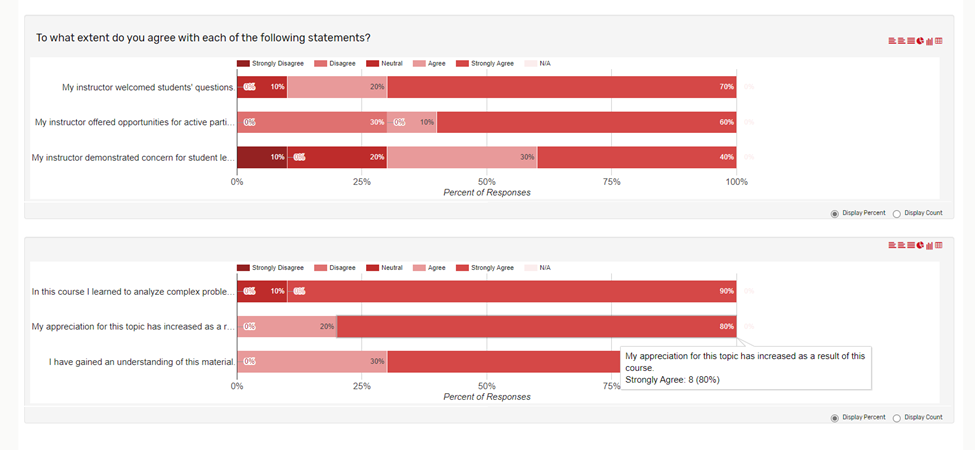
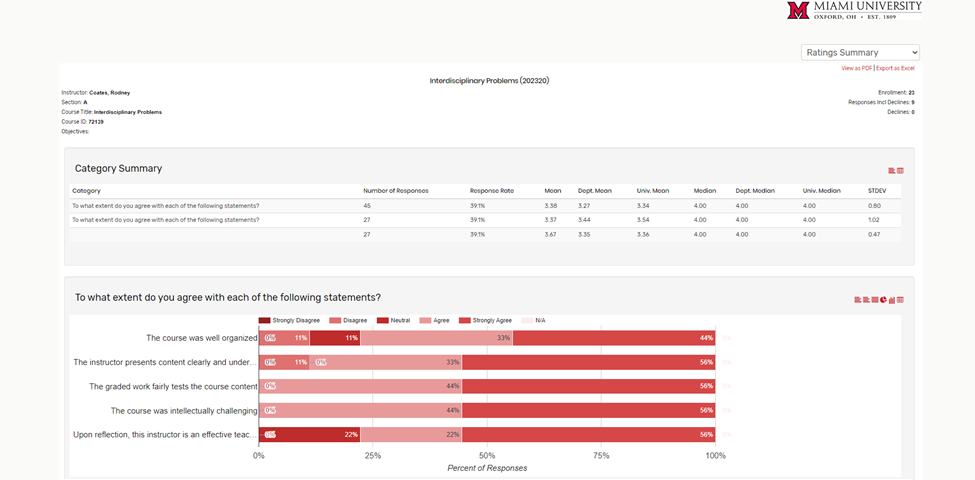



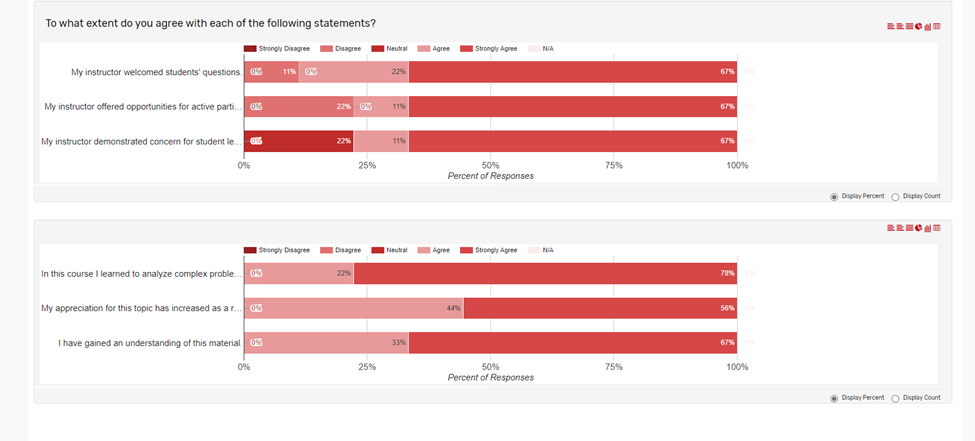




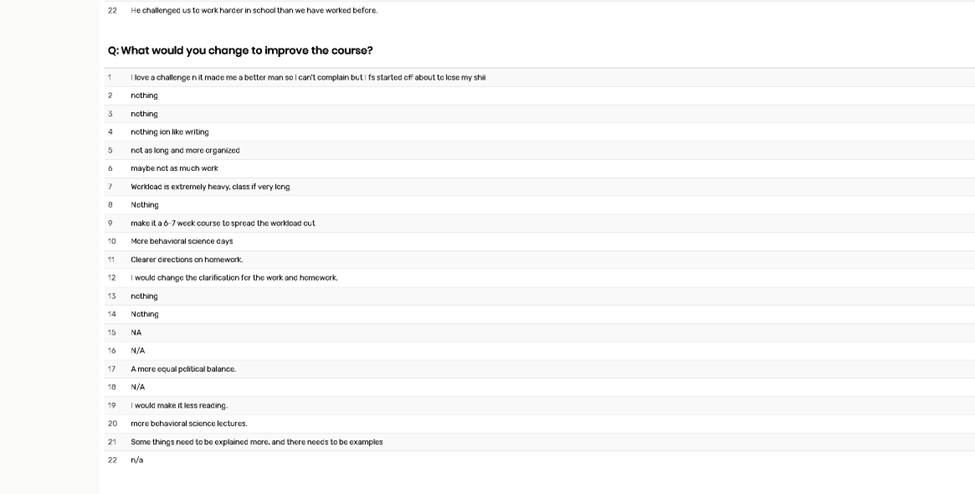

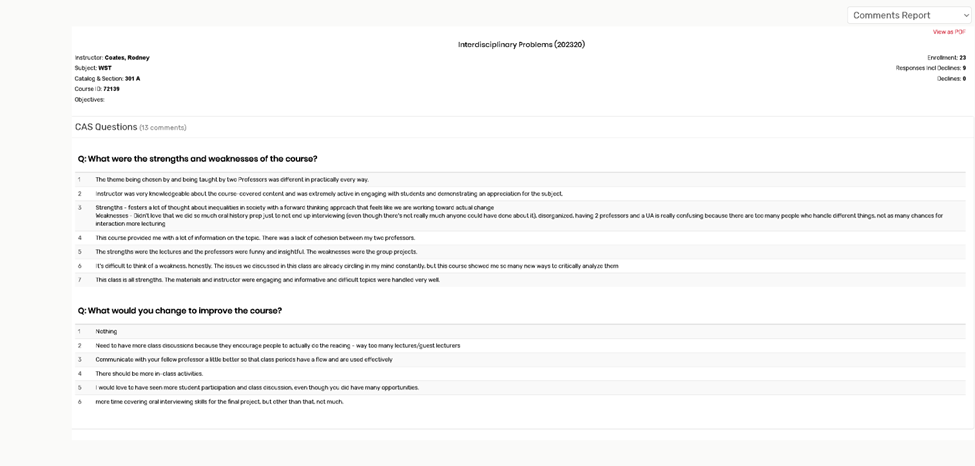


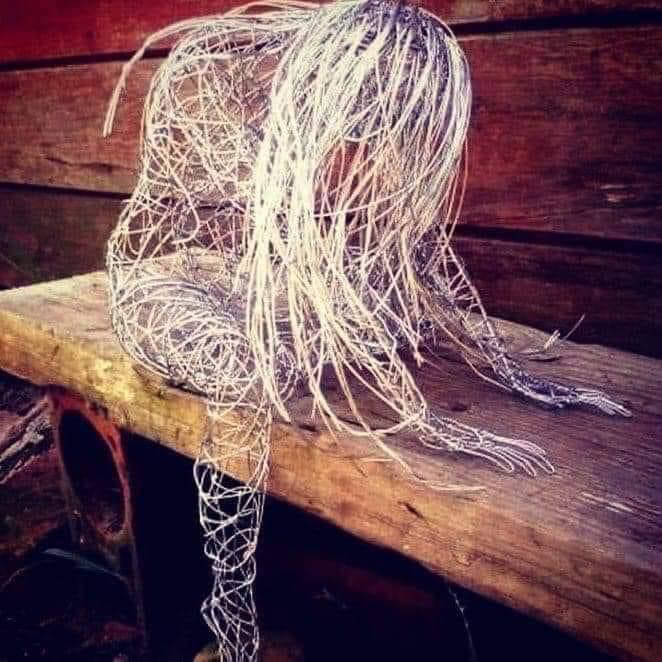

Comments
Post a Comment